RESEARCHERS
NAME 1
Ana Catarina Pinheiro has a degree in Pharmaceutical Sciences and a degree in Conservation and Restoration from the New University of Lisbon. She finished her PhD on Conservation Science in 2014 and has, since then, assumed a role in the research of biodeterioration and sustainability practices in Conservation. Has published several articles in peer-reviewed scientific journals and also contributed as an author and editor in specialized books.

ANA CATARINA PINHEIRO
Ph.D Grant holder
NAME 2
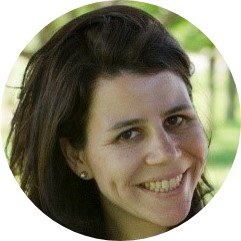
Catarina Gonçalves holds a degree and a master degree in Conservation and Restoration, specializing in graphic documents, at the Faculdade de Ciências e Tecnologia of the Universidade NOVA de Lisboa (FCT-UNL) since 2010.
Between 2011 and 2017 she collaborated as conservator-restorer at collection of Institute for Tropical Scientific Research and National Museum of Natural History and Science/ Museums of the University, with a Science and Technology Management Scholarships (SFRH/BGCT/51498/2011). From 2018 to 2019 she worked as a conservator-restorer at graphic documents and as a trainer in the area.
She is currently a research grant for conservation and restoration at graphic documents in project Horizontes cistercienses. Estudar e caracterizar um scriptorium medieval e a sua produção. Alcobaça. Identidades locais e uniformidade litúrgica em diálogo (PTDC/ART-HIS/29522/2017).

ANA CATARINA GONÇALVES
Research Grant holder
NAME 2

Catarina Gonçalves holds a degree and a master degree in Conservation and Restoration, specializing in graphic documents, at the Faculdade de Ciências e Tecnologia of the Universidade NOVA de Lisboa (FCT-UNL) since 2010.
Between 2011 and 2017 she collaborated as conservator-restorer at collection of Institute for Tropical Scientific Research and National Museum of Natural History and Science/ Museums of the University, with a Science and Technology Management Scholarships (SFRH/BGCT/51498/2011). From 2018 to 2019 she worked as a conservator-restorer at graphic documents and as a trainer in the area.
She is currently a research grant for conservation and restoration at graphic documents in project Horizontes cistercienses. Estudar e caracterizar um scriptorium medieval e a sua produção. Alcobaça. Identidades locais e uniformidade litúrgica em diálogo (PTDC/ART-HIS/29522/2017).

Project’s Volunteer
ANA LEMOS
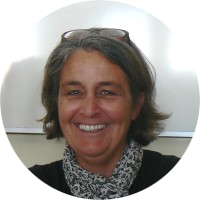 Ana Lemos has a degree in Art History by the Faculty of Arts of the University of Lisbon and was enrolled in the MA of Medieval Art History, Medieval Painting and Iconography in the University Paris IV/Sorbonne. She was also a researcher on the project “The colour in Portuguese medieval illumination”. As an expert on illuminated manuscripts and medieval iconography she is engaged in PhD project on books of hours with the department of Conservation and Restoration of the FCT-UNL. She lectures regularly in BA, MA and PhD seminars and has published several articles. Currently she is a researcher at IEM, FCSH-UNL and teacher of History at the Lycée Français Charles Lepierre, in Lisbon.
Ana Lemos has a degree in Art History by the Faculty of Arts of the University of Lisbon and was enrolled in the MA of Medieval Art History, Medieval Painting and Iconography in the University Paris IV/Sorbonne. She was also a researcher on the project “The colour in Portuguese medieval illumination”. As an expert on illuminated manuscripts and medieval iconography she is engaged in PhD project on books of hours with the department of Conservation and Restoration of the FCT-UNL. She lectures regularly in BA, MA and PhD seminars and has published several articles. Currently she is a researcher at IEM, FCSH-UNL and teacher of History at the Lycée Français Charles Lepierre, in Lisbon.
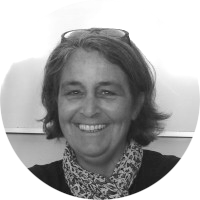
ANA LEMOS
CATARINA MIGUEL
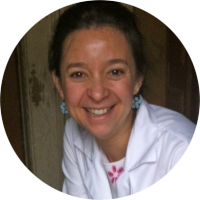
Researcher at the HERCULES Laboratory from Évora University, she holds a degree in Chemical Engineering from the Instituto Superior Técnico and a PhD in Conservation Sciences from the Faculty of Science and Technology of the Universidade Nova de Lisboa. Specialist in medieval illumination, she has worked for more than a decade in the study of materials and techniques used in the production of illuminations. She is currently studying the Romanic Hagiographies of Alcobaça in the European context, based on the comparative study of the materials, production techniques and iconography of illuminated Cistercian manuscripts of the Vatican Apostolic Library and the Médiathèque du Grand Troyes.
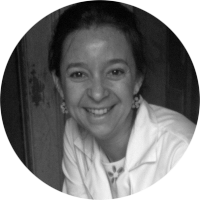
CATARINA MIGUEL
CATARINA TIBÚRCIO
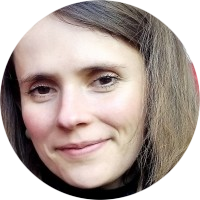
Catarina Martins Tibúrcio has graduated in Turistic Entreprises Management by the Hotel and Tourism Superior School of Estoril. She has practiced this professional area from 2004 to 2012. From 2009 to 2010 she has specialized in Conservation and Restauration of Mural Painting by the Ricardo Espírito Santo’s Foundation. From 2011 to 2013 she has attended to the master’s degree in Art, Heritage and Restauration Theory by the University of Lisbon, and she was certified unanimously. She is currently a doctoral student in the Institute for Medieval Studies of the Nova University in Lisbon. Her PhD thesis is about the 15th century portuguese court manuscripts and it’s funded by the Portuguese Foundation for Science and Technology (Ref.ª SFRH/BD/114758/2016) with the title: “Manuscritos iluminados na corte portuguesa do século XV – Temas e problemas de História da Arte e da Cultura.”. Her main interests are Late Middle Ages History, Late Medieval History of Art, 15th Century, Illuminated manuscripts from the low Middle Ages, Book History, Royal Libraries, Portuguese medieval monastic scriptoria, European Courts, Codicology, Paleography.

CATARINA TIBÚRCIO
GONÇALO MELO DA SILVA
 Gonçalo Silva (1989) is a portuguese Phd Candidate at the Institute of Medieval Studies (IEM – NOVA FCSH). His doctoral project As Portas do Mar Oceano: Vilas e Cidades Portuárias Algarvias na Idade Média (1249-1521) [The ocean´s gates: Algarve port towns in Late Middle Ages (1249-1521)] has been awarded a FCT grant by the Portuguese Science Foundation (FCT) in 2012. He obtained his degree in History (2010) and his MA in Medieval History from NOVA University of Lisbon (2012). He received for his work the Merit scholarship from NOVA (2012) and the Award for Best Master in History by NOVA FCSH (2013). In 2016, he did research stages at University of Cantabria (Spain) and Leiden University (Netherlands). He has a broad interest in various fields ranging from medieval history, maritime history, urban history, religious history and history of Portugal in the later Middle Ages to the Digital Humanities, especially Historical GIS, and Science Communication. Currently, he is a member of four projects: Maritime Conflict Management in Atlantic Europe, 1200-1600; CONCHA: The construction of early modern global Cities and oceanic networks in the Atlantic: An approach via Ocean’s Cultural Heritage; MedCraft – Regulamentação dos mesteres em Portugal nos finais da Idade Média: séculos XIV e XV; Cistercian Horizons. Study and characterize a medieval scriptorium and its production: Alcobaça. Dialogues between local identities and liturgical uniformity.
Gonçalo Silva (1989) is a portuguese Phd Candidate at the Institute of Medieval Studies (IEM – NOVA FCSH). His doctoral project As Portas do Mar Oceano: Vilas e Cidades Portuárias Algarvias na Idade Média (1249-1521) [The ocean´s gates: Algarve port towns in Late Middle Ages (1249-1521)] has been awarded a FCT grant by the Portuguese Science Foundation (FCT) in 2012. He obtained his degree in History (2010) and his MA in Medieval History from NOVA University of Lisbon (2012). He received for his work the Merit scholarship from NOVA (2012) and the Award for Best Master in History by NOVA FCSH (2013). In 2016, he did research stages at University of Cantabria (Spain) and Leiden University (Netherlands). He has a broad interest in various fields ranging from medieval history, maritime history, urban history, religious history and history of Portugal in the later Middle Ages to the Digital Humanities, especially Historical GIS, and Science Communication. Currently, he is a member of four projects: Maritime Conflict Management in Atlantic Europe, 1200-1600; CONCHA: The construction of early modern global Cities and oceanic networks in the Atlantic: An approach via Ocean’s Cultural Heritage; MedCraft – Regulamentação dos mesteres em Portugal nos finais da Idade Média: séculos XIV e XV; Cistercian Horizons. Study and characterize a medieval scriptorium and its production: Alcobaça. Dialogues between local identities and liturgical uniformity.
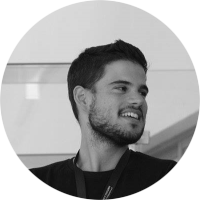
GONÇALO MELO DA SILVA
JOÃO LUÍS FONTES
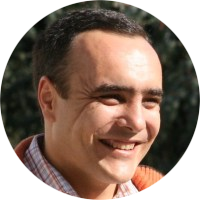 João Luís Fontes is a postdoctoral researcher of the Institute for Medieval Studies (Nova University) and the Centre of Studies on Religious History (Catholic University), with a research project entitled “The desert in the city: non-regular female religious experiences in late medieval Portugal (1350-1525)”. His research interests focus on religious history, lay religious practices and spirituality, religious reform, female and eremitical religious experiences. PhD in History by the Nova University of Lisbon (2012) with the thesis From “Poor Life” to the Congregation of Serra de Ossa: origins and institutionalisation of a hermitical experience (1364-1510).
João Luís Fontes is a postdoctoral researcher of the Institute for Medieval Studies (Nova University) and the Centre of Studies on Religious History (Catholic University), with a research project entitled “The desert in the city: non-regular female religious experiences in late medieval Portugal (1350-1525)”. His research interests focus on religious history, lay religious practices and spirituality, religious reform, female and eremitical religious experiences. PhD in History by the Nova University of Lisbon (2012) with the thesis From “Poor Life” to the Congregation of Serra de Ossa: origins and institutionalisation of a hermitical experience (1364-1510).

JOÃO LUÍS FONTES
JONATHAN WILSON
 Jonathan Wilson (jwilson@fcsh.unl.pt) (PhD, Liverpool) is a researcher in Hispanic Medieval History in the Instituto de Estudos Medievais, Universidade Nova, Lisbon. His investigations probe matters including ecclesiastical history, canon law, monasticism (particularly Cistercians and Canons Regular), the medieval Roman liturgy, perceptions of medieval Iberian Islam in its various forms, interfaith relations, and relations between Portugal and the wider Latin West and Latin East. Recently his work has focused upon Portugal’s relationship with Northern maritime crusaders and with crusading ideology. More generally his work involves analysis of Western Iberian literary/historiographical production during the twelfth and thirteenth centuries, and ancillary projects involve substantial elements of palaeography, codicology and manuscript studies as well as occasional forays into the archaeology of the medieval Iberian West. His most recent publication is “Enigma of the De Expugnatione Lyxbonensi”, Journal of Medieval Iberian Studies (2017) vol. 9, Nº. 1, 99-129. He is currently preparing editions and translations with attendant studies of two important manuscripts from the Cistercian Abbey of Alcobaça, the De Expugnatione Scalabis and the Gosnuini De Expugnatione Salaciae Carmen, respectively recounting the conquests of Santarém in 1147 and Alcácer do Sal in 1217, for the series Dallas Medieval Tests and Translations (Peeters Publishers, Leuven).
Jonathan Wilson (jwilson@fcsh.unl.pt) (PhD, Liverpool) is a researcher in Hispanic Medieval History in the Instituto de Estudos Medievais, Universidade Nova, Lisbon. His investigations probe matters including ecclesiastical history, canon law, monasticism (particularly Cistercians and Canons Regular), the medieval Roman liturgy, perceptions of medieval Iberian Islam in its various forms, interfaith relations, and relations between Portugal and the wider Latin West and Latin East. Recently his work has focused upon Portugal’s relationship with Northern maritime crusaders and with crusading ideology. More generally his work involves analysis of Western Iberian literary/historiographical production during the twelfth and thirteenth centuries, and ancillary projects involve substantial elements of palaeography, codicology and manuscript studies as well as occasional forays into the archaeology of the medieval Iberian West. His most recent publication is “Enigma of the De Expugnatione Lyxbonensi”, Journal of Medieval Iberian Studies (2017) vol. 9, Nº. 1, 99-129. He is currently preparing editions and translations with attendant studies of two important manuscripts from the Cistercian Abbey of Alcobaça, the De Expugnatione Scalabis and the Gosnuini De Expugnatione Salaciae Carmen, respectively recounting the conquests of Santarém in 1147 and Alcácer do Sal in 1217, for the series Dallas Medieval Tests and Translations (Peeters Publishers, Leuven).

JONATHAN WILSON
LUÍS MIGUEL RÊPAS
L uís Rêpas has a Masters degree in Medieval history from the University of Coimbra and is a researcher in the Instituto de Estudos Medievais (FCSH-UNOVA) and the Centro de História da Sociedade e da Cultura (FL-UC). He specialises in Portuguese Medievalism focussing particularly on Monastic and Social History as well as Palaeography and Diplomatics. His Masters Dissertation, “Quando a Nobreza Traja de Branco. A Comunidade Cisterciense de Arouca durante o Abadessado de D. Luca Rodrigues (1286-1299)” was published in 2003, whilst among his other publications are several articles on Cistercian female monasteries and their conventual communities, namely Arouca, Almoster, Odivelas and Cástris, also articles on liturgical manuscripts from Cistercian houses, contained in leading journals, essay collections and acts of congresses. He is currently completing his doctoral dissertation based on a transversal investigation into Cistercian female communities in medieval Portugal.
uís Rêpas has a Masters degree in Medieval history from the University of Coimbra and is a researcher in the Instituto de Estudos Medievais (FCSH-UNOVA) and the Centro de História da Sociedade e da Cultura (FL-UC). He specialises in Portuguese Medievalism focussing particularly on Monastic and Social History as well as Palaeography and Diplomatics. His Masters Dissertation, “Quando a Nobreza Traja de Branco. A Comunidade Cisterciense de Arouca durante o Abadessado de D. Luca Rodrigues (1286-1299)” was published in 2003, whilst among his other publications are several articles on Cistercian female monasteries and their conventual communities, namely Arouca, Almoster, Odivelas and Cástris, also articles on liturgical manuscripts from Cistercian houses, contained in leading journals, essay collections and acts of congresses. He is currently completing his doctoral dissertation based on a transversal investigation into Cistercian female communities in medieval Portugal.

LUÍS MIGUEL RÊPAS
MARIA DA CONCEIÇÃO OLIVEIRA
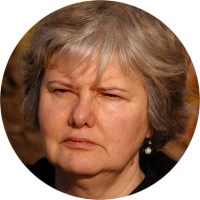 Auxiliary Researcher of IST/ULisboa at Centro de Química Estrutural-IST, and Director of the Node IST, Campus Alameda, National Mass Spectrometry Network (RNEM).Conceição Oliveira received her Graduation in Chemistry “Physical-Chemistry” from FCUL (1984), and her PhD degree in Chemistry “Physical-Chemistry” from UL (1995). Her scientific specialization lies in Gas Phase Ion Chemistry and Mass Spectrometry.
Auxiliary Researcher of IST/ULisboa at Centro de Química Estrutural-IST, and Director of the Node IST, Campus Alameda, National Mass Spectrometry Network (RNEM).Conceição Oliveira received her Graduation in Chemistry “Physical-Chemistry” from FCUL (1984), and her PhD degree in Chemistry “Physical-Chemistry” from UL (1995). Her scientific specialization lies in Gas Phase Ion Chemistry and Mass Spectrometry.
Currently her main scientific areas of research include (a) MS-based methodologies for qualitative and quantitative analysis of (bio)molecules in complex matrices; (b) metabolomic strategies for practical applications in crop quality improvement, and identification of emerging pollutants in environmental samples; (c) structural characterization of natural and synthetic dyes with historical interest.
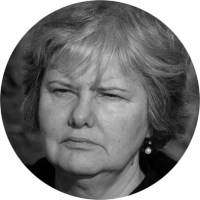
MARIA DA CONCEIÇÃO OLIVEIRA
MARIA FILOMENA ANDRADE
 Filomena Andrade holds a degree in History from the Faculty of Arts of the University of Lisbon; master (1994) and Ph.D. in Medieval History (2011) by the Faculty of Social and Human Sciences of the New University of Lisbon. Professor at the Open University. Member and, since 2014, Deputy Director of the “Center for the Study of Religious History” of the Portuguese Catholic University. He currently participates in the international project “Spiritual Landscapes. Models of spatial approximation to the transformations of medieval feminine religiosity in the Peninsular Kingdoms (XII century-XVI) “(HAR2014-52198-P), coordinated by Prof. Blanca Gari de Aguilera. His areas of specialization and interest are: religious history; female monasticism, religious archivists, and women’s studies.
Filomena Andrade holds a degree in History from the Faculty of Arts of the University of Lisbon; master (1994) and Ph.D. in Medieval History (2011) by the Faculty of Social and Human Sciences of the New University of Lisbon. Professor at the Open University. Member and, since 2014, Deputy Director of the “Center for the Study of Religious History” of the Portuguese Catholic University. He currently participates in the international project “Spiritual Landscapes. Models of spatial approximation to the transformations of medieval feminine religiosity in the Peninsular Kingdoms (XII century-XVI) “(HAR2014-52198-P), coordinated by Prof. Blanca Gari de Aguilera. His areas of specialization and interest are: religious history; female monasticism, religious archivists, and women’s studies.

MARIA FILOMENA ANDRADE
PAULA CARDOSO
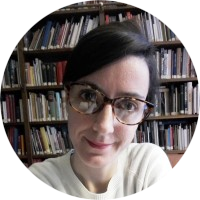 Paula Cardoso is a Ph.D. candidate in History of Art at the NOVA University of Lisbon currently writing a thesis devoted to the role of Portuguese Dominican nuns in the production and acquisition of illuminated manuscripts in the period 1465‒1560. She received her M.A. in History of Art in 2013, from the University of Lisbon, where she started her work on female illuminators. She is a full member of the Instituto de Estudos Medievais of the NOVA University of Lisbon where she has been developing her doctoral project under a grant from the Fundação para a Ciência e a Tecnologia since 2015.
Paula Cardoso is a Ph.D. candidate in History of Art at the NOVA University of Lisbon currently writing a thesis devoted to the role of Portuguese Dominican nuns in the production and acquisition of illuminated manuscripts in the period 1465‒1560. She received her M.A. in History of Art in 2013, from the University of Lisbon, where she started her work on female illuminators. She is a full member of the Instituto de Estudos Medievais of the NOVA University of Lisbon where she has been developing her doctoral project under a grant from the Fundação para a Ciência e a Tecnologia since 2015.
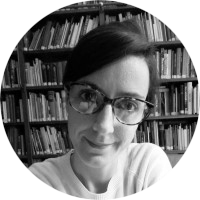
PAULA CARDOSO
PAULO LOPES
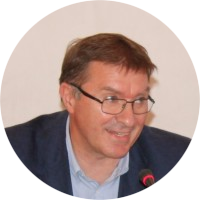 PhD Researcher, Paulo Catarino Lopes is a full member of the Institute of Medieval Studies (IEM), a Research Unit of the Faculty of Social Sciences and Humanities (Faculdade de Ciências Sociais e Humanas) of Universidade Nova de Lisboa (NOVA FCSH). Having as field of specialization Medieval History (Culture and Mentalities), his main research interests cover three fundamental areas:
PhD Researcher, Paulo Catarino Lopes is a full member of the Institute of Medieval Studies (IEM), a Research Unit of the Faculty of Social Sciences and Humanities (Faculdade de Ciências Sociais e Humanas) of Universidade Nova de Lisboa (NOVA FCSH). Having as field of specialization Medieval History (Culture and Mentalities), his main research interests cover three fundamental areas:
– Travel, circulation and mobility of people, objects, ideas and models (with particular attention to diplomacy, pilgrimages, religious reforms [c. 1370-1517] and the mercantile world);
– Portugal and the foreigners (12th-15th centuries) (presence, attitudes, perceptions, representations and identity constructions);
– The sea (imaginary, perceptions and representations).
Main conceptual framework: spatiality/landscape, frontier, representation, identity, otherness, interculturality, community, imaginary, spirituality and emotion. He is currently a postdoctoral fellow by the Foundation for Science and Technology (FCT), with the project “Conceptions of Europe in Portuguese documental sources of 15th and 16th centuries” (SFRH/BPD/97963/2013).

PAULO LOPES
RITA ARAÚJO
 Rita Araújo holds a degree in Conservation and Restoration by Faculdade de Ciências e Tecnologia of the Universidade NOVA de Lisboa (FCT-UNL). She has a master’s degree in Conservation and Restoration at the same college, with the thesis “The Books of Hours (XV century) in the collection of the Mafra’s National Palace: Study and Conservation”. She collaborated with the Department of Conservation and Restoration of FCTUNL with a research scholarship, developing research alluding to the subject of her masters’ dissertation (2013). Currently, she is developing her doctoral thesis on the study and conservation of Book of Hours‘ bindings from the 15th century, belonging to Portuguese collections. She has also participated in national and international meetings and written articles in this area.
Rita Araújo holds a degree in Conservation and Restoration by Faculdade de Ciências e Tecnologia of the Universidade NOVA de Lisboa (FCT-UNL). She has a master’s degree in Conservation and Restoration at the same college, with the thesis “The Books of Hours (XV century) in the collection of the Mafra’s National Palace: Study and Conservation”. She collaborated with the Department of Conservation and Restoration of FCTUNL with a research scholarship, developing research alluding to the subject of her masters’ dissertation (2013). Currently, she is developing her doctoral thesis on the study and conservation of Book of Hours‘ bindings from the 15th century, belonging to Portuguese collections. She has also participated in national and international meetings and written articles in this area.

RITA ARAÚJO
ZUELMA CHAVES
 Zuelma Chaves is a Ph.D. Candidate in Historical Musicology, at the Faculty of Social Sciences and Humanities – Nova University of Lisbon (FCSH/NOVA), having been awarded a Doctoral Grant by the Portuguese Foundation for Science and Technology. She completed the 8th grade in piano at the Escola Profissional de Música de Almada and concluded her degree in Musicology at (FCSH/NOVA). As an Erasmus Exchange student she studied at Complutense University, Madrid, with Cristina Bordas Ibañez. Under the supervision of Manuel Pedro Ferreira she completed a Master’s degree in Musicology at FCSH/NOVA with a dissertation entitled “The Office of the Dead in Portugal: The monophonic repertoire in Portuguese sources up to c. 1700”.
Zuelma Chaves is a Ph.D. Candidate in Historical Musicology, at the Faculty of Social Sciences and Humanities – Nova University of Lisbon (FCSH/NOVA), having been awarded a Doctoral Grant by the Portuguese Foundation for Science and Technology. She completed the 8th grade in piano at the Escola Profissional de Música de Almada and concluded her degree in Musicology at (FCSH/NOVA). As an Erasmus Exchange student she studied at Complutense University, Madrid, with Cristina Bordas Ibañez. Under the supervision of Manuel Pedro Ferreira she completed a Master’s degree in Musicology at FCSH/NOVA with a dissertation entitled “The Office of the Dead in Portugal: The monophonic repertoire in Portuguese sources up to c. 1700”.
She is a researcher at CESEM (Centre for Studies in Musical Sociology and Aesthetics) and member of the Early Music group. Her main areas of interest are the study of early music (plainchant, codicology and musical palaeography), organology and terminology.
Since 2010 she has collaborated in several projects at CESEM mainly related to music collections, digitalization of manuscripts, description of musical manuscripts and musical instruments.

ZUELMA CHAVES
MÁRIO FARELO
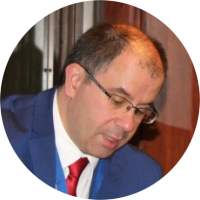 Mário Farelo got his M.A. at the University of Montreal (Canada) (1999) and a M.A. and PhD in Medieval History at the Universidade de Lisboa (2004 and 2009). He developed between 2009 and 2014 a post-PhD Project at IEM, CEHR and LAMOP concerning Le royaume du Portugal et l’interventionnisme de la Papauté d’Avignon (1305-1377).
Mário Farelo got his M.A. at the University of Montreal (Canada) (1999) and a M.A. and PhD in Medieval History at the Universidade de Lisboa (2004 and 2009). He developed between 2009 and 2014 a post-PhD Project at IEM, CEHR and LAMOP concerning Le royaume du Portugal et l’interventionnisme de la Papauté d’Avignon (1305-1377).
Invited lecturer of the History Department of the NOVA Faculdade de Ciências Sociais and Humanas (2008-2009; 2011-2012; 2015-2016), he is currently coordinator of the Research Group Territories and Powers within the IEM and member of the research projects Œconomy Studies: Funding, resources and management of the Portuguese university (13th-16th centuries) (Centro de História da Universidade de Lisboa – PTDC/EPHHIS/3154/2014).
Besides the history of the relations between the realm of Portugal and the Papacy, his other subjects of research are the history of Medieval Lisbon; ecclesiastical, urban and cultural history of medieval Portugal, manly its episcopacy, the University of Lisbon-Coimbra and the Portuguese medieval and early modern peregrinatio academica.
Since 1st of September of 2019 its a PhD contracted by the Project VINCULUM.


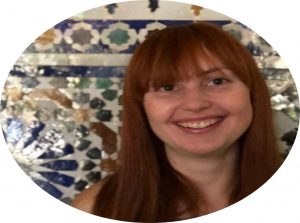
 SOON
SOON